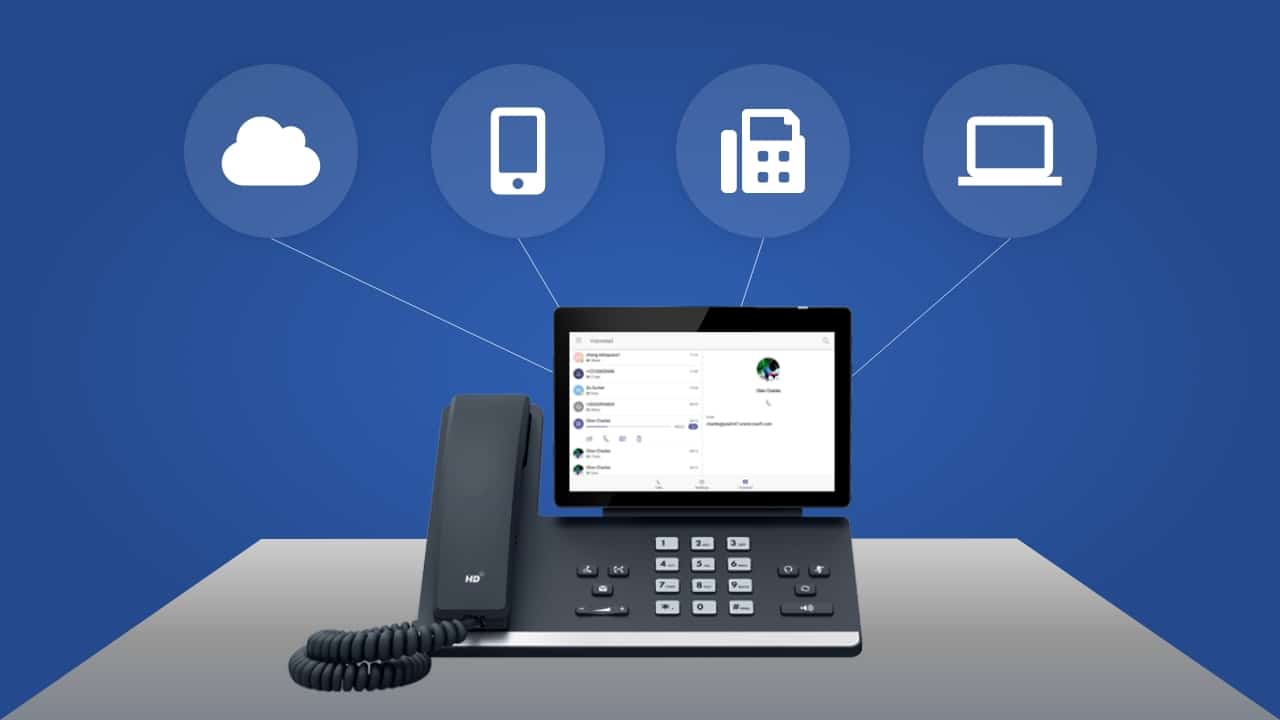VoIP is a famous innovation that is practical and affordable for present-day companies. Businesses choose to set up a VoIP system by integrating the technical parts as per their requirements or buying an overall service plan.
VoIP Infrastructure
VoIP Explained

What to Opt for in a VoIP Infrastructure
Top-notch communication is an integral part of any company. So, the best standard and reliability are key aspects in establishing your VoIP foundation. The interesting necessary points to look out for when installing your VoIP framework are:
- Smoothness and uptime
- Notification and fault elimination
- Maintaining call quality
- Response time and restoration
- Security and consistency
Concentrating on these aspects will assist the end-users with having an ideal and effective VoIP experience.
Step by Step Instructions to Improve Your VoIP Infrastructure

VoIP comprises telephone hardware, inside connections, and connections with on location or off-location networks.
1. VoIP Bandwidth
2. VoIP Security
Necessary VoIP Integrations to Remember

An application programming interface that runs with VoIP integrations makes it feasible for the digital utilities to communicate with each other, providing a smooth experience for clients. Here are some of the necessary VoIP integrations you may consider helpful.
CRM
Combining with your CRM framework lets your sales groups call customers easily without changing gadgets. That makes it simple to record call history automatically, rather than allowing human glitches by physically entering data when the call concludes.
Click-to-Call
By combining VoIP with WebRTC technology, businesses can integrate click-to-call features to their sites without downloading and installing an application called web call or click-to-dial. Instead, end-users easily click on an icon to enquire for a fast connection with someone else utilising the internet.
Social Media Marketing
Social media marketing integrations permit your clients to interact with you on social media platforms like Facebook and Twitter. Assuming they are on social media and choose to visit you, they can contact you with VoIP incorporation.
Text
Text, or SMS, is a famous method for clients to interact with companies because of the simplicity in utilising cell phones. Applications that can assist text permits you to answer client requests inside your business apps. Moreover, it’s a secure and reliable method for guaranteeing that the appropriate person is receiving your messages.
Components of VoIP Infrastructure
VoIP infrastructure is a collection of hardware and software that enables voice communications over the internet. VoIP infrastructure components include:
– Connections: high-speed internet, broadband, or dedicated VoIP lines.
– Applications: softphones, VoIP phones, and conference calling applications.
– Equipment: headsets, VoIP adapters, and VoIP phones.
Many businesses switch from traditional telephone services to VoIP because of their cost savings and features. VoIP infrastructure provides businesses with a more efficient way to communicate with employees, customers, and partners worldwide.
With a VoIP infrastructure in place, companies can take advantage of features such as:
– Calling from any location: With VoIP, users are no longer limited to their desk phone. VoIP allows smartphone users to easily transition between calling on the go and at their desks by using VoIP softphone applications or VoIP phones.
– Call anywhere in the world: VoIP can connect two people regardless of where they are located around the world. By using VoIP, businesses have increased flexibility for long-distance calls because they do not need to maintain a separate line for each international location.
– Bring your number with you: With VoIP, customers keep the same phone numbers when they move locations instead of having to learn new digits. Instead of requiring employees to have multiple numbers for different countries—which increases operational costs—a company could provide VoIP phones to employees as they travel.
– Greater call control: VoIP offers greater flexibility for handling calls with features such as VoIP hold music, VoIP transfer, VoIP conference bridges, VoIP call recording, and VoIP wait for queues.
– Increase sales opportunities: VoIP allows employees outside of the office to take part in meetings from anywhere around the world. That means that international customers can easily reach out to a business at any time without worrying about geographic barriers.
– Utilise your data network: Many businesses are hesitant to switch from traditional telephone systems because they do not want to lose access to tie lines or PBX capabilities. But, VoIP allows companies to use their data network for VoIP traffic, which means that they can maintain these essential features while enjoying the benefits of VoIP.
– Lowered costs: VoIP is a more cost-effective way to communicate than traditional telephone services. VoIP calls are typically less expensive than long-distance calls made through a telecom carrier, and there are no monthly fees associated with using VoIP.
– Increased efficiency: VoIP can help businesses reduce the amount of time spent on administrative tasks such as manually transferring calls or providing customer service.
With VoIP, many of these tasks are automated, which leads to increased efficiency and productivity in the workplace.
The Outcome of the Post
- VoIP is cost-effective, especially for businesses that make a large number of long-distance calls.
- VoIP provides more features than traditional phone lines, including voicemail, caller ID, call forwarding, and conference calling.
- You can use VoIP with various devices, including computers, smartphones, and tablets.
- You can place VoIP calls over the internet, which means they aren’t subject to distance or location restrictions.
- VoIP is scalable, meaning it can be adapted to fit the needs of business or organisations of any size.
- VoIP is reliable and can be used with existing phone equipment.
- VoIP is secure, thanks to end-to-end encryption.
- You can make VoIP calls anywhere if there is an internet connection.
- VoIP is easy to use and set up in minutes.
- VoIP is a green technology that helps businesses save energy costs.
- VoIP supports multiple languages and dialects.
- VoIP offers superior sound quality than traditional phone lines.




